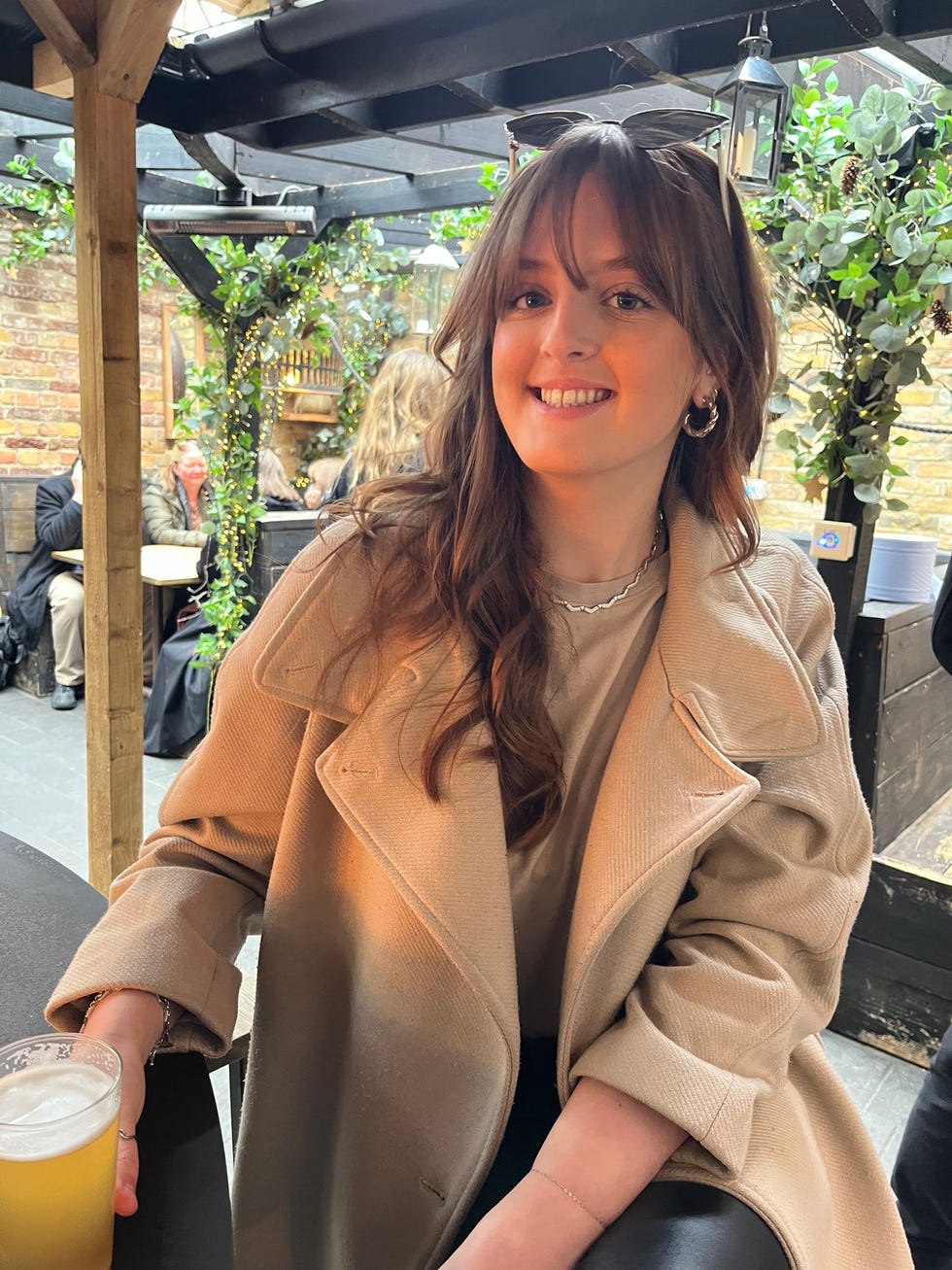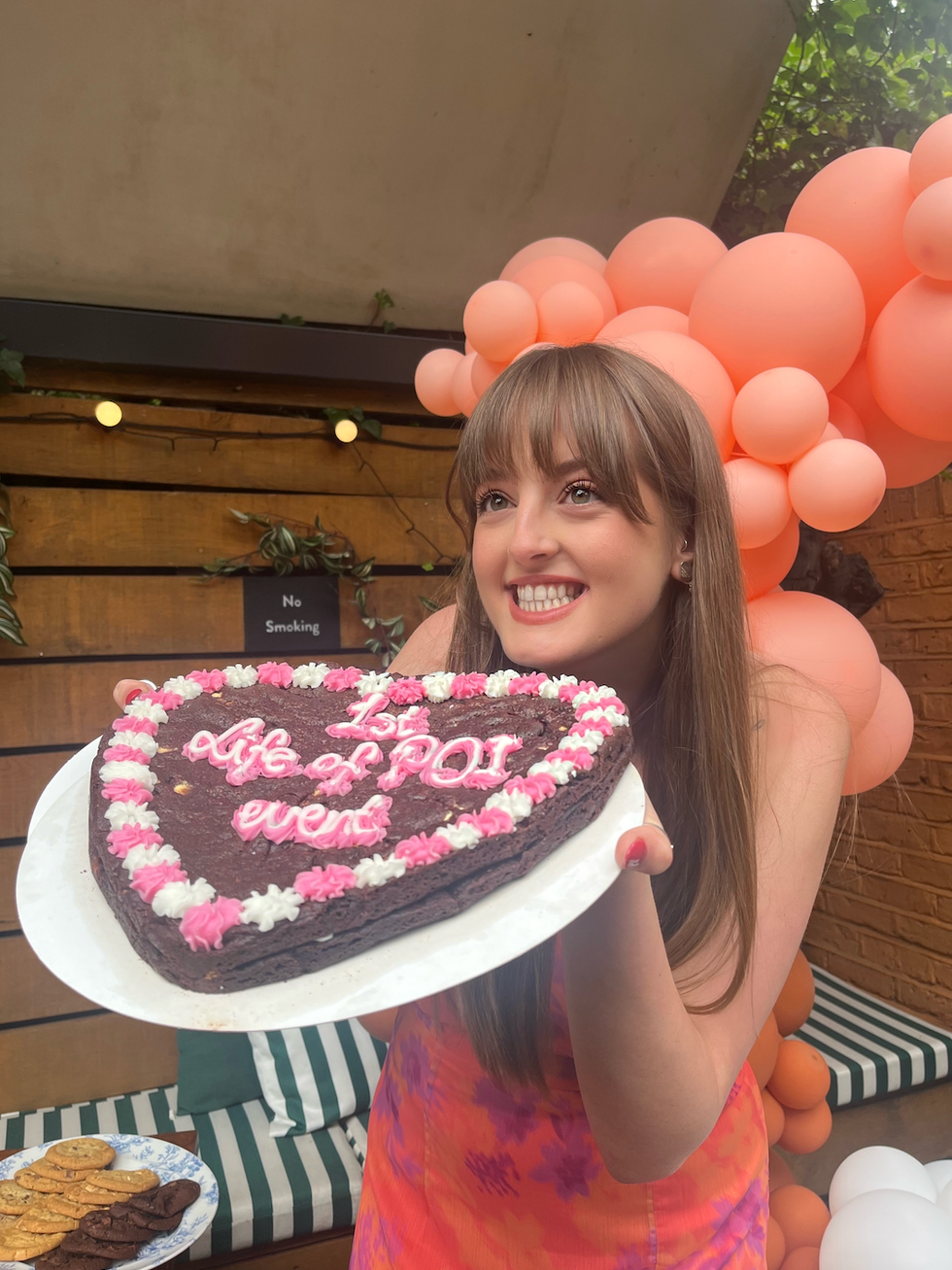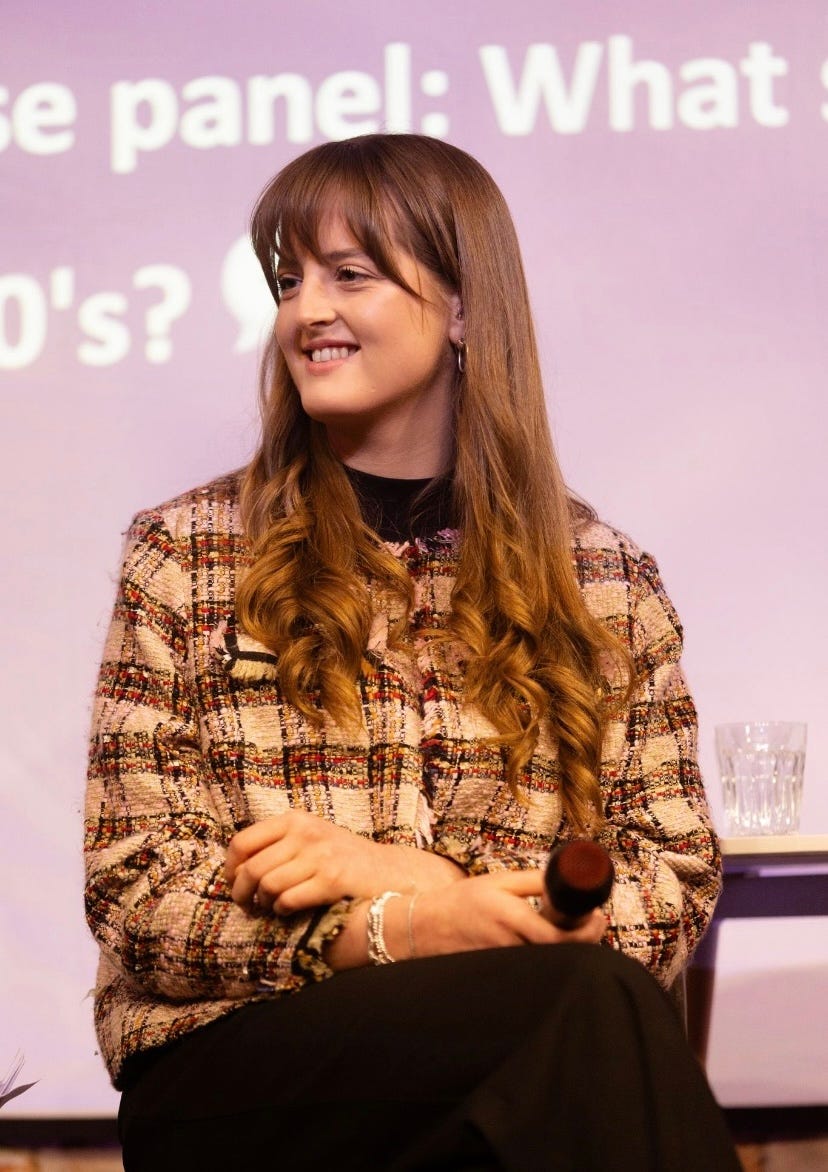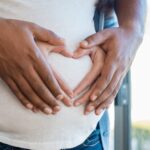As a child, I was always sick.
I missed school a lot because of horrible backaches, extreme fatigue, debilitating headaches, and hot flashes that left me drenched in sweat and unable to sleep..
At 13, my friends at school were all talking about starting their periods, buying pads and tampons, and getting their first bras. But I never could fit into these conversations. I hadn’t started menstruating or wearing bras yet, so I questioned if something was wrong with me. My mom said I was probably just a “late bloomer.”
I started forgetting where my classrooms were. I’d raise my hand in class and forget what I had to say, and I struggled with memory and brain fog. Then, I began having sudden hot flashes and had to wear short-sleeved shirts and dresses, even when it was cold outside.
In hindsight, these were all symptoms of menopause.
Deep down, I knew something was wrong.
When I was 14, I saw a primary care doctor who did a basic check-up. The doctor concluded that I had nothing to be concerned about.
I waited to get my first period. By 15, my friends were starting their first relationships, but I was still waiting for my period and breasts to develop. I felt so insecure.
I couldn’t shake the feeling that there was something wrong. I went back to the doctor with my mom and told the office we weren’t leaving until I received answers. My doctor conducted a blood test, and three days later when they received the results, they referred me to see a pediatrician in the gynecology department in Manchester, UK.
“This must not be good,” I thought.
As I sat in the waiting room, I tried to convince myself that everything would be normal. There, I ended up getting an ultrasound scan—and the doctors looked shocked to see the result.
The doctor said I was going through premature ovarian failure.
They also told me, “You’re infertile.” I was frozen by the words “failure” and “infertility.”
Primary ovarian insufficiency (POI), which used to be called premature ovarian failure, is when the ovaries don’t make the typical amounts of estrogen or release eggs regularly before the age of 40, according to Mayo Clinic. POI affects an estimated 1 percent of women under the age of 40, impacting one in 10,000 women by age 20, one in 1,000 women by age 30, and one in 100 women by age 40 according to a 2004 study in the Orphanet Journal of Rare Diseases. Ninety percent of all diagnosed cases do not have a known cause, per the NIH. I happen to be one of the cases where the cause is unknown.
At that moment, being told I couldn’t conceive a child made me think, “I’m just not a woman.”
By the time I knew my ovaries were insufficient, it was too late to go through the egg retrieval process so that I could have biological kids in the future.
When I left the doctor’s office, I was handed a green prescription slip and a leaflet that said “What Is Menopause?” on the front, with two elderly ladies on the front. At that moment, I didn’t feel represented at all.
A few days after my diagnosis, I was back in my high school classroom studying for exams.
I felt like I was in my own bubble dealing with a massive diagnosis while also still trying to be a “normal” teenage girl. I had to learn how to incorporate unexpected feelings of anger and shame into my life.
I didn’t want anyone to treat me differently. So from that day forward, I carried on as if I had my period by carrying tampons and pads in my bag. I didn’t tell my siblings, extended family, or even my friends what I was going through. It felt like I was pretending to be someone who I wasn’t, and I was so embarrassed.
Discourse about menopause can often sound pretty negative, whether it be online or in medical settings. “Your ovaries are declining,” “Your reproductive system is decaying,” and “Your ovaries are failing,” all have a negative connotation. Even the name of the condition, “Premature Ovarian Failure,” uses the word failure.
I felt so much shame around my diagnosis. Thirty-seven percent of women who go through menopause reported feeling shame related to their menopause-related symptoms, and 82.7 percent of respondents felt stigma attached to their symptoms, according to a 2023 study published in the Journal of Women’s Health. Going through menopause at such a young age made me feel detached from everyone in my life, and I started experiencing depression.
After my diagnosis, I started hormone replacement therapy (HRT) along with a contraceptive pill and antidepressants.
My doctor prescribed me a combined birth control pill with both progesterone and estrogen.
When women have POI, there is an early loss of estrogen and other ovarian hormones, according to a 2016 study in the Author Manuscript Journal. You need to replenish those hormones, otherwise, there are long-term impacts that could be detrimental to your health, such as heart disease, dementia, osteoporosis, diabetes, and early mortality, per a 2015 study published in the Orphanet Journal of Rare Diseases. Oral contraceptives and hormone replacement therapy can help prevent those adverse conditions.
It was hard for me to grapple with taking a contraceptive because it made no sense to me. On one hand, I wondered why I had to take the pill if I couldn’t have biological children. But on the other, taking the pill made me feel like I could finally fit in with my friends who were also taking it (obviously, for different reasons).
Now, at 24, I’m postmenopausal, and I’m on a full HRT regimen.
I receive estrogen, progesterone, and testosterone, and I have to replace my hormones at a slightly higher dose than my average menopausal peers because I’m still so young. My HRT treatment involves gels and patches covering my body, testosterone gel, vaginal tablets, and the Mirena coil—a hormonal IUD that releases the hormone progestin, per Mayo Clinic—but everyone’s journey with treatment is different.
I will have to continue HRT for the rest of my life. It’s similar to taking iron for anemia; HRT replaces the hormones your body should naturally produce. Although there’s no universal recommendation for how long a woman should be on HRT treatment, the consensus is that it should be continued until the age of natural menopause, around 50 years of age, according to a 2017 study in the Human Reproduction Open Journal.
I grieved the future I imagined. I felt betrayed by my own body. I cycled between anger, denial, sadness, shame, and alienation. But I knew I had to stop feeling sorry and blaming myself. Since my diagnosis, I’ve been in and out of therapy to learn how to accept my condition and learn healthy ways to heal and grieve.
I was silent about my condition until I had a lot of time to reflect during the pandemic.
The pandemic and lockdown period was the first time when I sat down and reflected in-depth about my diagnosis. I started writing, journaling, and researching POI in a way I had never done before.
One day, I found an article that said 1 in 10,000 women go through premature ovarian insufficiency under the age of 20. I thought, “I must not be alone.” I searched the population of England and then the population of my small town Burnley, and I realized there were more people like me. And if I had been silent for so long, I wondered if other women also felt alone.
This prompted me to start my Instagram page @lifeofpoi_, where I created my first post about living with POI. As soon as I hit publish, immediately, people started calling me saying things like, “I never would have known,” or “I feel bad for you,” and “You’re so strong.”
A week after I posted, one person messaged me saying, “You’re just like me.” I continued to post educational content about POI and early menopause, and the response was beautiful.
It took four years of feeling lonely, but after having the courage to share my health story, I thought, “Why have I never talked about this publicly before?”
I now have more than 3,500 followers on Instagram. Sometimes, women will reach out and say I’m “living their dream” for not having a period. Men will send rude messages about my infertility, which is a particularly heartbreaking aspect of my condition. And while I do receive mean messages from time to time, I’ve built a strong skin and I know who I am. I am someone who has this condition, but I am not the condition.
This awakening led me to want to pursue serious research and help others in my community. I wrote my university thesis about early menopause and the stigmas associated with infertility and aging. I recently graduated with a master’s degree where I continued that research. I also hosted my first POI event where I shared my story and met other people in this community, and I’ve also spoken at women-centric events to raise awareness.
Life with POI is hard, but I’ve come a long way.
Even now at 24, it’s hard for me to decipher what symptoms are just me being a human and what symptoms are as a result of POI. If I feel hot, I wonder if I’m having a hot flash. I question if I’m a forgetful person or if it’s just brain fog. My symptoms are hard to manage because I have no baseline to compare. I’ve been experiencing symptoms of POI for the majority of my life. It’s a balancing act every day, but I stick to my HRT regimen, and I also try to keep a nourishing diet and walk everywhere I can to stay on top of my fitness.
I struggle with health anxiety about dementia, osteoporosis, and early mortality, since some of the research I read mentions that these conditions could develop as a result of POI. It’s a scary reality. But I finally started seeing a specialist for POI last year, which has helped a lot, so I’ve been feeling a lot better.
Throughout this journey, I’ve learned that you don’t have to be afraid of yourself when it comes to health. Nothing in life that is worth having or worth doing is easy. There will be good times and there will be bad times, but the good times will outweigh them.
Read the full article here






